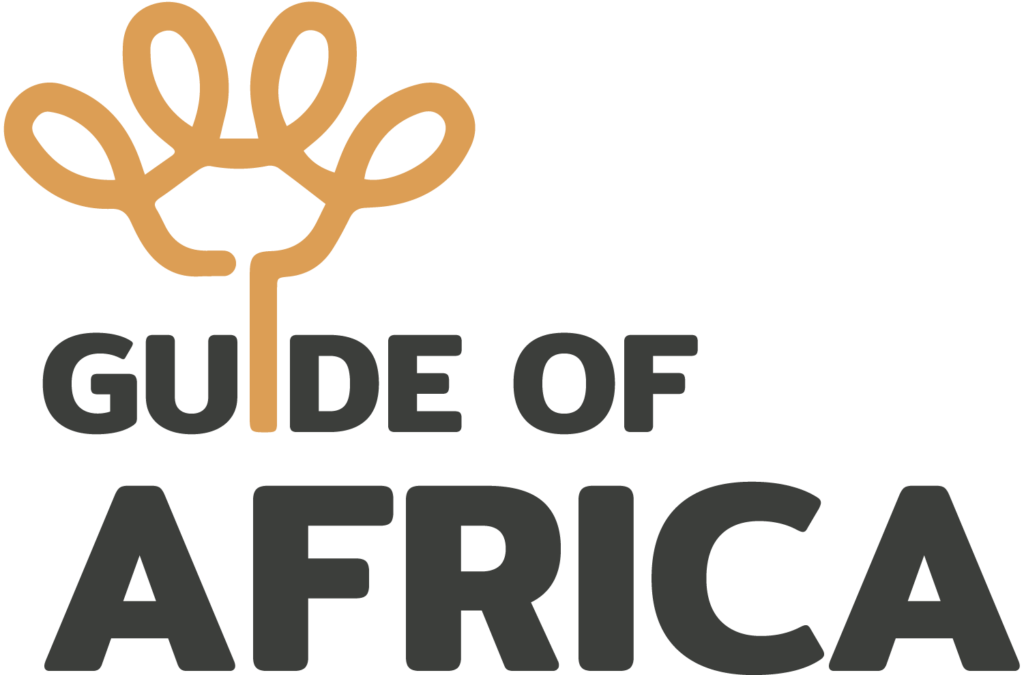Wine tourism in Africa offers a fascinating journey that blends ancient winemaking traditions with stunning landscapes. While countries like South Africa have long been celebrated for their vineyards, other African nations are rapidly emerging as promising wine destinations. This guide explores the top spots across Africa for wine enthusiasts eager to discover unique flavors and breathtaking scenery.
Table of Contents
1. South Africa: The Heart of African Winemaking
Cape Winelands, Western Cape
South Africa is synonymous with world-class wine, and the Cape Winelands region is its crown jewel. Nestled just an hour away from Cape Town, this area boasts historic estates in Stellenbosch, Franschhoek, and Paarl. Visitors can explore a range of experiences from luxury tastings to intimate cellar tours.
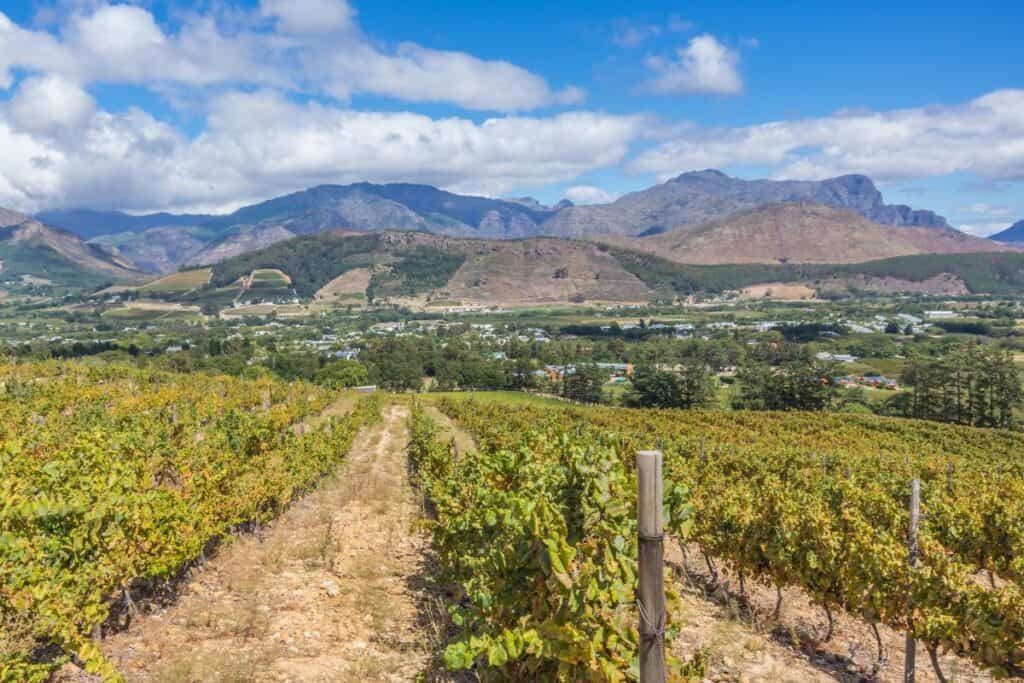
Stellenbosch
Stellenbosch, known for its robust reds and crisp whites, is a must-visit. The town’s oak-shaded streets are lined with cafes and art galleries, adding a cultural flair to the wine-tasting trips. Vineyards like Kanonkop and Tokara offer tours that detail their production processes and history.
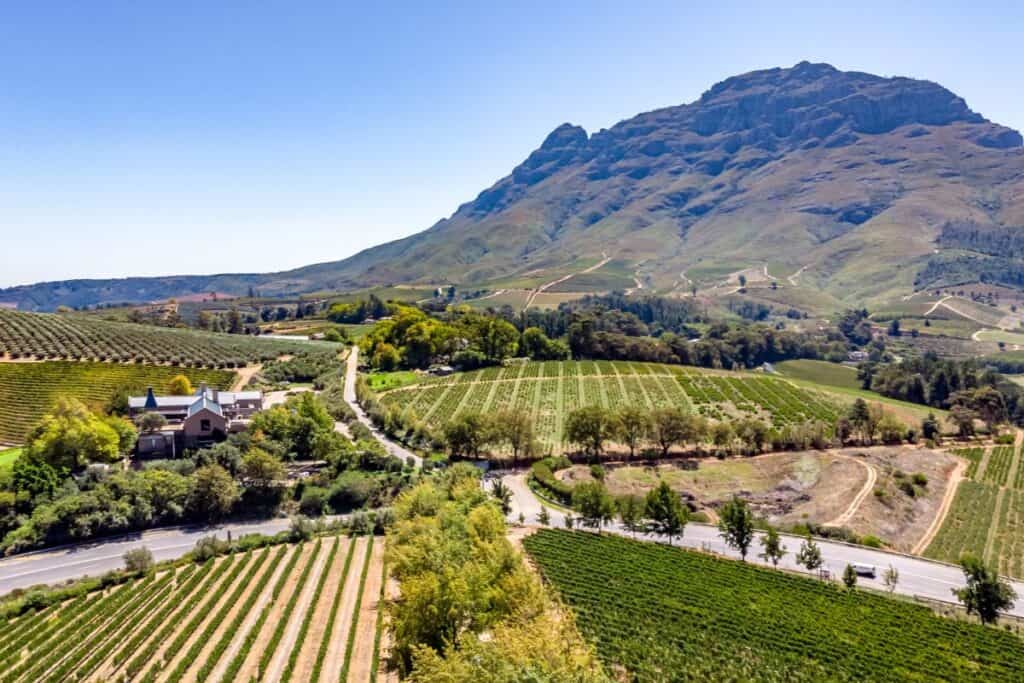
Franschhoek
Franschhoek, often referred to as the “French Corner,” is celebrated for its exquisite culinary scene and French Huguenot heritage. The Franschhoek Wine Tram, an innovative hop-on-hop-off tram service, allows tourists to visit multiple wineries without worrying about transportation.
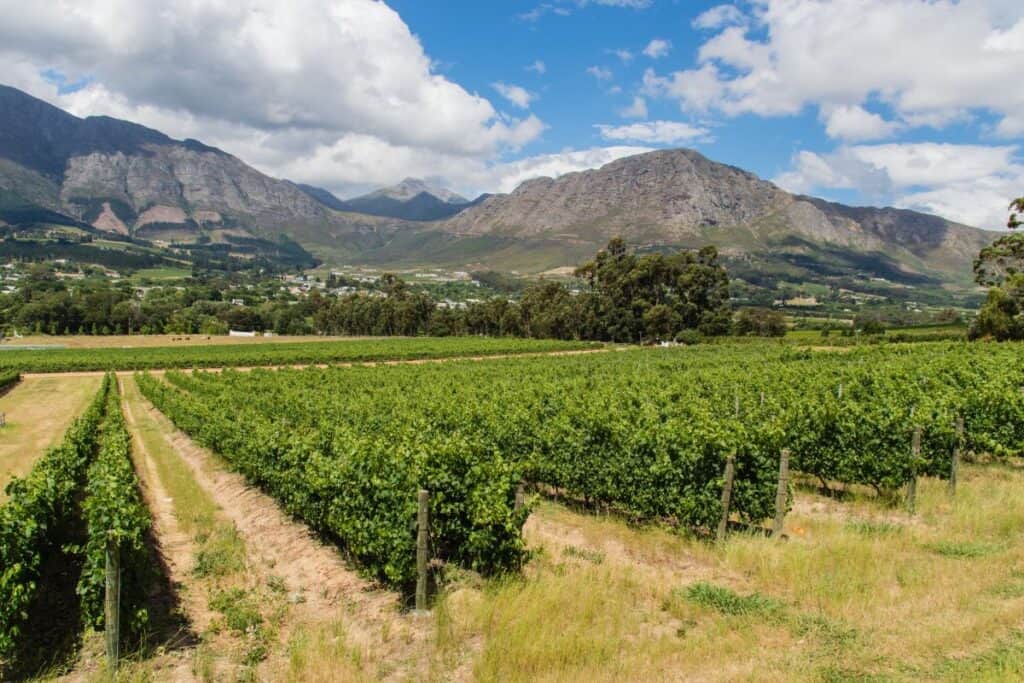
Constantia Valley
Constantia, the birthplace of South African wine, is located on the outskirts of Cape Town. Its cool climate is perfect for producing Sauvignon Blanc and Semillon. Groot Constantia, South Africa’s oldest winery, provides a glimpse into the viniculture dating back to 1685.
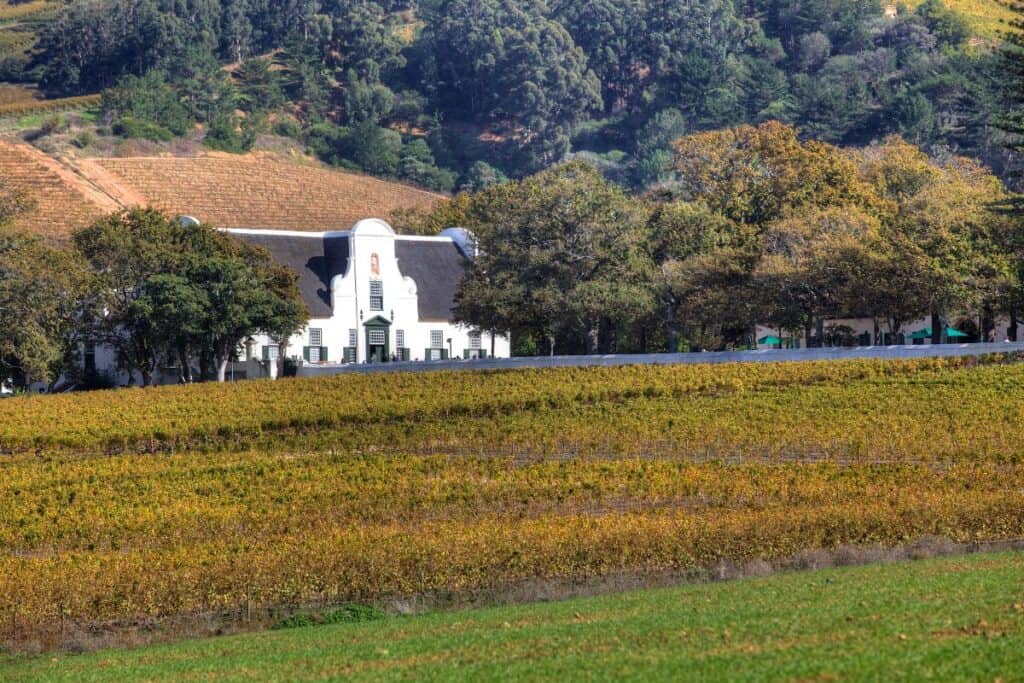
2. Morocco: A Blend of Arabic and French Winemaking Traditions
Meknes
Nestled between the Rif and the Middle Atlas Mountains, Meknes is the center of Moroccan viticulture, heavily influenced by French colonial heritage. The region’s high altitude and rich soils produce distinctive varietals like Syrah and Merlot. Visiting the Chateau Roslane offers an enchanting experience with its lavish estate and spa.
3. Ethiopia: Ancient Roots and Unique Varietals
Rift Valley
Despite being more famous for its coffee, Ethiopia also has a burgeoning wine industry. The Rift Valley, with its volcanic soils, is ideal for growing grapes. A visit to the Awash Winery, which has been producing wine since the 1960s, offers insight into the adaptability of viticulture in varying climates.
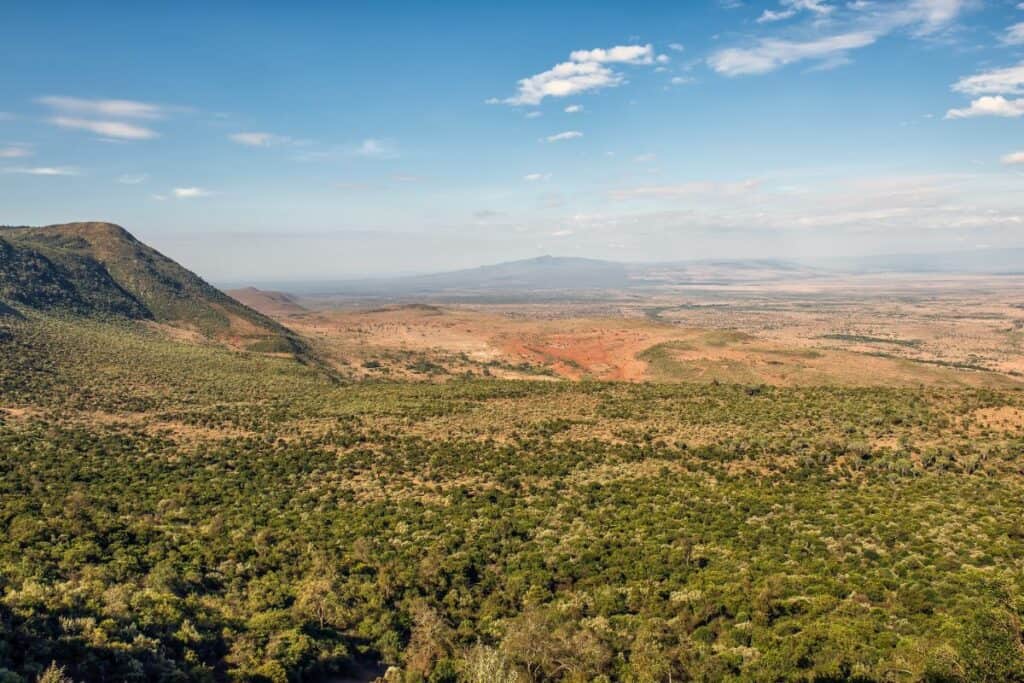
4. Kenya: East Africa’s Upcoming Wine Scene
Naivasha
Kenya might surprise many as a wine destination, but its efforts in viticulture are noteworthy. The cool climate of the Naivasha region has proven suitable for wine grape cultivation. Rift Valley Winery, known locally as Leleshwa, produces wines that reflect the unique terroir of the area.
5. Zimbabwe: A Reemerging Wine Country
Eastern Highlands
The Eastern Highlands of Zimbabwe offer a promising environment for vineyards due to their cool climate and high rainfall. The region is home to Bushman Rock, which provides tours of their vineyards and a chance to taste their range of wines paired with local cuisine.
6. Tunisia: Mediterranean Influences on North African Wines
Cap Bon Peninsula
In Tunisia, the Cap Bon Peninsula is renowned for its vibrant vineyards influenced by the Mediterranean climate. Wineries here, like Domaine Neferis, combine ancient techniques with modern technology, producing varietals that are both complex and highly palatable.
7. Namibia: Desert Vines and Unique Terroirs
Neuras Wine and Wildlife Estate
Namibia might not be the first place that comes to mind for wine production, given its arid climate, but the Neuras Wine and Wildlife Estate defies expectations. Located in the Naukluft Mountains, this winery combines viticulture with conservation. The extreme temperature variations between day and night contribute to the unique character of its wines. Visitors can enjoy tastings while also partaking in wildlife tours, offering a unique juxtaposition of desert life and winemaking.
8. Egypt: Reviving Ancient Winemaking
El Gouna, Red Sea
Egypt’s winemaking history dates back to the pharaohs, and modern efforts aim to revive this ancient tradition. The vineyards around El Gouna on the Red Sea are experimenting with both local and international grape varieties. The warm, dry climate helps produce wines with intense flavors and aromas. A tour here offers not just wine tasting but also a chance to explore ancient Egyptian culture and beautiful Red Sea resorts.
9. Ghana: Tropical Winemaking
Volta Region
While not traditionally known for wine, Ghana is experimenting with tropical winemaking in the Volta Region, where local fruits like pineapples are fermented to create unique and flavorful wines. This approach offers a different perspective on what constitutes wine and showcases the innovative spirit of Ghanaian producers. Tours here are often coupled with cultural experiences, giving visitors a taste of local Ghanaian hospitality and cuisine.
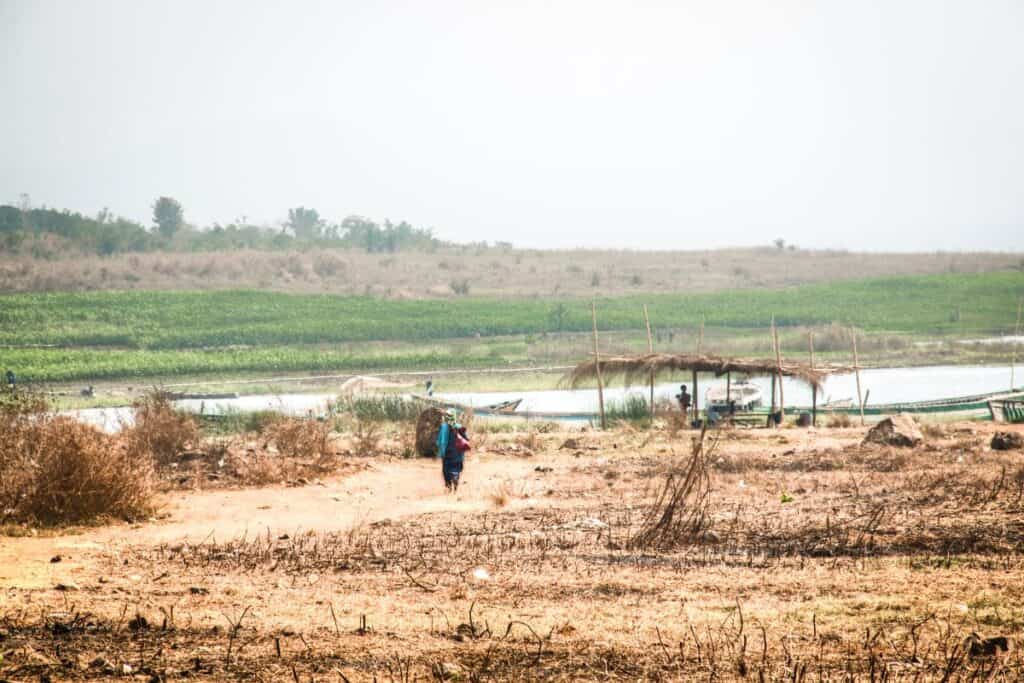
10. Zambia: A Fresh Take on Winemaking
Lusaka Province
Zambia is another newcomer to the African wine scene, with small-scale producers in Lusaka Province pioneering the movement. The focus here is on sustainable and organic practices, aiming to produce eco-friendly wines. The region’s moderate climate and rich soil potential make it a promising area for future growth. Visitors can experience the grassroots level of winemaking and participate in the community-centered approach that Zambian winemakers are known for.
Travel Tips for Wine Tourism in Africa
When planning a wine tour in Africa, consider the following tips:
- Best Time to Visit: The best time to visit vineyards in Africa is during the harvest season, which varies by region but generally falls between January and April.
- Tour Planning: Many wineries require advance booking for tours and tastings. It’s advisable to plan your itinerary and confirm appointments beforehand.
- Local Regulations: Be aware of local alcohol consumption regulations, especially in predominantly Muslim countries like Morocco and Tunisia.
- Cultural Sensitivity: Embrace the local culture and traditions. Participating in community activities can enrich your experience.

Conclusion
Africa’s wine regions offer a blend of traditional and modern winemaking techniques set against the backdrop of the continent’s diverse landscapes and cultures. From the historic estates of South Africa to the emerging vineyards of Kenya and Tunisia, each destination offers a unique wine-tasting experience that caters to both novice enthusiasts and connoisseurs alike. Whether you are exploring the lush vineyards of the Cape Winelands or sipping a glass of Syrah in Meknes, African wine tourism promises an unforgettable adventure.
